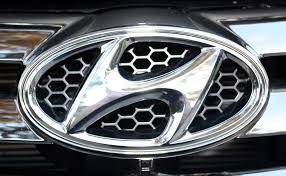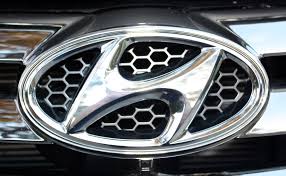
As Hyundai Motor Co seeks to catch up to Tesla and other rivals, the company said on Thursday that it was placing electric vehicles at the center of its product strategy - one that includes plans for a premium long-distance electric car.
As Tesla shot to prominence and battery-powered cars have gained government backing in China, like Toyota Motor Corp, Hyundai has found itself shifting electric even as the company had initially championed fuel cell technology as the future of eco-friendly vehicles.
Local media have reported that Toyota is now also working on longer distance, fast-charging electric vehicles.
With a range of 500 km (310 miles) per charge, launch of an electric sedan under its high-end Genesis brand in 2021 is being planned by the South Korean automaker. In the first half of next year, with a range of 390 km, it will also introduce an electric version of its Kona small sport utility vehicle (SUV).
"We're strengthening our eco-friendly car strategy, centering on electric vehicles," Executive Vice President Lee Kwang-guk told a news conference, calling the technology mainstream and realistic.
They were adding three plug-in vehicles to their plans for eco-friendly cars, bringing the total to 31 models by 2020, the automaker and affiliate Kia Motors Corp, which together rank fifth in global vehicle sales, also said.
In a contrast to its 2014 announcement for 22 models, of which only two were slated to be battery-powered, those plans include eight battery-powered and two fuel-cell vehicles, underscoring Hyundai's electric shift.
The company would be allowed to produce multiple models with longer driving ranges as it is developing its first dedicated electric vehicle platform, Hyundai has also confirmed.
Last year, it launched its first mass-market pure electric car IONIQ, but the vehicle's per-charge driving range is much shorter than offerings from Tesla and General Motors.
Compared with the 415 km for its current Tucson fuel cell SUV, with a driving range of more than 580 km per charge, Hyundai unveiled a near production version of its new fuel cell SUV.
The mid-sized SUV will be launched in Korea early next year, followed by U.S. and European markets. While a sedan-type fuel cell car is also planned, a fuel cell electric bus is slated to be unveiled late this year. But partly due to a lack of charging infrastructure, gaining traction with fuel cells was going to be a long hard slog, analysts noted.
"Hyundai will achieve economies of scale for fuel cell cars by 2035 at the earliest," said Lee Hang-koo, a senior research fellow at Korea Institute for Industrial Economics & Trade.
"Before that, Hyundai has no choice but to rely on battery cars," he said.
Dubbed the Tucson Fuel Cell, but sales trailed Toyota's rival offering, Mirai, Hyundai launched the world's first mass-produced fuel cell vehicle in 2013.
While Toyota sold some 3,700 Mirai Fuel Cell vehicles since its 2014 launch, Hyundai has sold about 862 of Tucson Fuel Cell vehicles since its 2013 launch.
Hyundai said that there are 10 fuel cell charging stations, only one tenth of 100 in Japan in Korea.
(Source:www.reuters.com)
As Tesla shot to prominence and battery-powered cars have gained government backing in China, like Toyota Motor Corp, Hyundai has found itself shifting electric even as the company had initially championed fuel cell technology as the future of eco-friendly vehicles.
Local media have reported that Toyota is now also working on longer distance, fast-charging electric vehicles.
With a range of 500 km (310 miles) per charge, launch of an electric sedan under its high-end Genesis brand in 2021 is being planned by the South Korean automaker. In the first half of next year, with a range of 390 km, it will also introduce an electric version of its Kona small sport utility vehicle (SUV).
"We're strengthening our eco-friendly car strategy, centering on electric vehicles," Executive Vice President Lee Kwang-guk told a news conference, calling the technology mainstream and realistic.
They were adding three plug-in vehicles to their plans for eco-friendly cars, bringing the total to 31 models by 2020, the automaker and affiliate Kia Motors Corp, which together rank fifth in global vehicle sales, also said.
In a contrast to its 2014 announcement for 22 models, of which only two were slated to be battery-powered, those plans include eight battery-powered and two fuel-cell vehicles, underscoring Hyundai's electric shift.
The company would be allowed to produce multiple models with longer driving ranges as it is developing its first dedicated electric vehicle platform, Hyundai has also confirmed.
Last year, it launched its first mass-market pure electric car IONIQ, but the vehicle's per-charge driving range is much shorter than offerings from Tesla and General Motors.
Compared with the 415 km for its current Tucson fuel cell SUV, with a driving range of more than 580 km per charge, Hyundai unveiled a near production version of its new fuel cell SUV.
The mid-sized SUV will be launched in Korea early next year, followed by U.S. and European markets. While a sedan-type fuel cell car is also planned, a fuel cell electric bus is slated to be unveiled late this year. But partly due to a lack of charging infrastructure, gaining traction with fuel cells was going to be a long hard slog, analysts noted.
"Hyundai will achieve economies of scale for fuel cell cars by 2035 at the earliest," said Lee Hang-koo, a senior research fellow at Korea Institute for Industrial Economics & Trade.
"Before that, Hyundai has no choice but to rely on battery cars," he said.
Dubbed the Tucson Fuel Cell, but sales trailed Toyota's rival offering, Mirai, Hyundai launched the world's first mass-produced fuel cell vehicle in 2013.
While Toyota sold some 3,700 Mirai Fuel Cell vehicles since its 2014 launch, Hyundai has sold about 862 of Tucson Fuel Cell vehicles since its 2013 launch.
Hyundai said that there are 10 fuel cell charging stations, only one tenth of 100 in Japan in Korea.
(Source:www.reuters.com)














